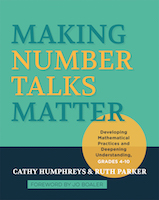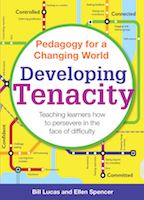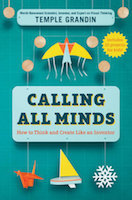With the Christmas Holiday’s finally here this is the perfect opportunity to catch up on some of that reading which has been delayed while more pressing matters are dealt with. Here are the top items on my holiday reading list. With a project underway that explores a conceptual based approach to teaching mathematics there is a bias in that direction.
1. In the Moment: Conferring in the Elementary Math Classroom by Jen Munson
In this book the idea of a mathematics conference is unpacked and made practical. By conferencing mathematical understanding students are invited to move beyond knowing and develop deep and flexible knowledge. Teachers gain valuable insight about how their students are processing mathematical concepts and where they might need to intervene. - “A conference is a shared opportunity for teachers and students to learn together in the moment”
2. Making Number Talks Matter: Developing mathematical practices and deepening understanding by Cathy Humphreys & Ruth Parker
"Number Talks" is an approach to the teaching and learning of Number Sense. Rather than relying on the rote-memorisation of isolated number facts achieved through drills of "table-facts", Number Talks aim to build confident, number fluency, where learners recognise patterns within and between numbers and understand the properties of numbers and operations. Number Talks are a "mind on" learning task that engages students in an active learning process as they search for patterns, decompose and recompose numbers and develop a flexible understanding. It is achieved through direct instruction methods and facilitative dialogue with the teacher or between groups of peers who have had experience with the number talks methodology. It becomes one of the routines of a classroom focused on mathematical reasoning.
Number sense is important because it encourages students to think flexibly and promotes confidence with numbers. . . . The fact is, students who lack a strong number sense have trouble developing the foundation needed for even simple arithmetic, let alone more complex mathematics. A large body of research has shown that number sense develops gradually, over time, as a result of exploration of numbers, visualizing numbers in a variety of contexts, and relating to numbers in different ways. (Keith Devlin)
Making Number Talks Matter is a great introduction for teachers looking to make thinking with and about numbers a routine part of their student’s learning.
3. Yes, But Why: Teaching for understanding in mathematics by Ed Southall
As teachers of mathematics we all know the maths we need to teach? A more challenging question is do we truly understand it? If we are looking to change how we teach mathematics because we realise that the methods used in the past did not build understanding we might have a problem if we learned our maths by these same methods. In this book author Ed Southall dives into the details behind the mathematics. This is the perfect book for the mathematical thinker who wants to understand the ‘why’ of mathematical concepts, who needs to know their origin story and who enjoys looking at things from a slightly different perspective.
4. Flip the System Australia: What matters in education edited by Deborah M. Netolicky, Jon Andrews and Cameron Paterson
The third book in the Flip the System series turns the focus to Australia and its unique context. This is a book by teachers for teachers with a clear goal; challenge the current hierarchy and seek to explore ‘What matters in education’ rather than following global agendas and a ‘what works’ paradigm. The authors draw on their experience from inside the profession and their knowledge of the conflicting pressures that our modern education system faces. "This book does some talking but is ultimately about listening to the wisdom of the profession and engaging them at system level. We hope that by amplifying diverse but collective voices, this book can be part of a move to a world in which similar voices are sought out and valued by those traditionally at the decision-making peak of the education system.”
5. Developing Tenacity: Teaching learners how to persevere in the face of difficulty by Bill Lucas and Ellen Spencer
The growing trend in terms of curriculum design is characterised by a tension between advocates of a capabilities or disposition driven curriculum and those advocating for a focus on knowledge. There is no shortage of opinion and research around what the capabilities or dispositions are that our young people will need for success in their futures and Lucas and Spencer have added their voice to that discussion. In this series, which started with ‘Developing Creativity’, the authors move the conversation to the practical point of describing what classroom routines and pedagogies might we implement if we want to develop these capabilities.
6. Calling all Minds: How to think and create like an inventor by Temple Grandin
Written by an inspiring and creative thinker who loves to tinker and apply her knowledge of engineering combined with her capacity to visualise ideas to create solutions to problems. This book combines insights into the mind of a world-renowned maker with practical projects which get the reader involved in tinkering. This is a book that challenges a singular view of intelligence as a limited set of cognitive capacities and reveals that it is a much more expansive concept. “There is no better way to start than by making things of your own design. All the projects I made when I was young contributed to the inventions I’ve made throughout my life. And they have given meaning to my life.” If we seek to enable a generation of creative problem solvers who will transform the global challenges we face into opportunities, we need to get them inventing before they leave school.
By Nigel Coutts






